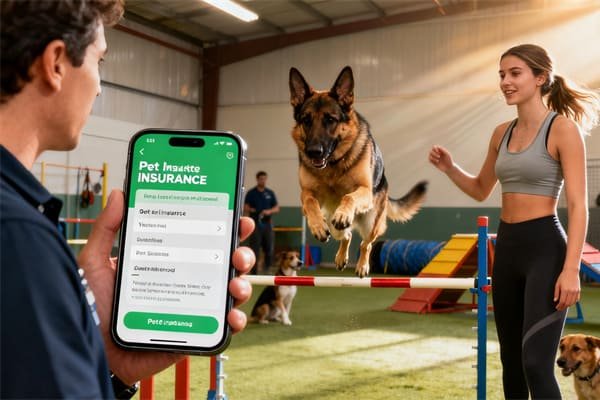I’ve watched insurance companies transform from paper-based operations to digital powerhouses. The change has been remarkable.
Yes, all major insurance companies now offer mobile apps. Leading providers like State Farm, GEICO, Progressive, and Allstate provide comprehensive apps for policy management, claims filing, and digital ID cards.

Let me share my insights about insurance apps based on my experience helping clients navigate digital insurance solutions.
What Insurance Company Has the Best App?
Clients often ask me which insurance app delivers the best user experience1.
GEICO consistently ranks highest for app satisfaction, with a user-friendly interface, quick claims processing, and reliable digital ID access. State Farm follows closely with comprehensive features and stable performance.

Let’s examine what makes certain apps stand out:
App Feature Analysis
-
Essential Functions
- Policy management
- Claims processing
- Digital ID cards
- Bill payment
- Roadside assistance
-
Advanced Features
- Accident reporting
- Vehicle telematics
- AI assistance2
- Document upload
- Virtual inspections
Company App Comparison
| Feature | GEICO | State Farm | Progressive |
|---|---|---|---|
| User Experience | Excellent | Very Good | Good |
| Claims Process | Fast | Fast | Standard |
| Digital ID | Always Available | Always Available | Always Available |
| Customer Support | 24/7 | 24/7 | Limited Hours |
Does Personal Insurance Have an App?
This question reflects growing interest in digital insurance management.
Yes, personal insurance providers offer mobile apps. Whether it’s auto, home, life, or health insurance, most major carriers provide apps for policy management and claims.

Let’s explore personal insurance app capabilities:
Personal Insurance Apps
-
Coverage Types
- Auto insurance
- Home insurance
- Life insurance
- Health insurance
- Disability insurance
-
App Functionalities
- Policy viewing
- Premium payments
- Coverage updates
- Claim submissions
- Document storage
Personal Insurance App Features
| Insurance Type | Common Features | Special Functions |
|---|---|---|
| Auto | Accident Reports | Driver Tracking |
| Home | Property Photos | Inventory Tools |
| Life | Beneficiary Management | Health Integration |
| Health | Provider Search | Telehealth Access |
Do Insurance Companies Have Access to Life360?
Privacy concerns about tracking apps frequently come up in my client discussions.
Insurance companies don’t have direct access to Life360, but some partner with similar tracking technologies through their own apps. Usage is always voluntary and requires explicit user consent.

Let’s examine tracking in insurance apps:
Insurance Tracking Systems
-
Data Collection
- Driving behavior
- Location services
- Speed monitoring
- Braking patterns
- Trip logging
-
Privacy Controls
- User permissions
- Data encryption
- Access limitations
- Storage policies
- Deletion options
Tracking Technology Comparison
| Feature | Insurance Apps | Life360 | Third-Party Apps |
|---|---|---|---|
| Purpose | Rate Adjustment | Family Safety | Various |
| Control | User Managed | Family Managed | App Dependent |
| Access | Limited | Family Based | Varies |
| Privacy | High | Moderate | Varies |
Are Insurance Driving Apps a Good Idea?
As someone who’s tested multiple driving apps, I can offer informed perspective.
Insurance driving apps can be beneficial, potentially saving 5-30% on premiums through good driving habits. However, consider privacy implications and whether the savings justify the monitoring.

Let’s analyze the pros and cons:
Driving App Considerations
-
Advantages
- Premium discounts
- Driving feedback
- Accident detection
- Emergency response
- Maintenance alerts
-
Concerns
- Privacy impact
- Battery drain
- Data accuracy
- Constant monitoring
- Technical issues
Cost-Benefit Analysis
| Factor | Benefit | Drawback |
|---|---|---|
| Savings | 5-30% Discount | Time Investment |
| Safety | Driving Feedback | Privacy Loss |
| Service | Quick Response | Battery Usage |
| Records | Trip History | Data Storage |
Conclusion
Major insurance companies not only have apps but are continuously improving them. The best apps offer comprehensive features from claims processing to digital ID cards3, while optional tracking features can provide savings for those comfortable with monitoring.



